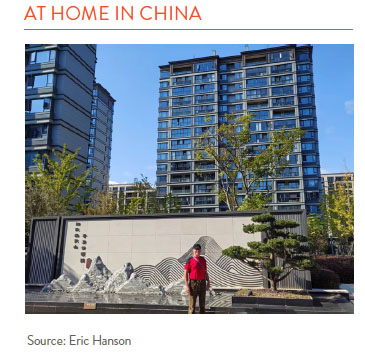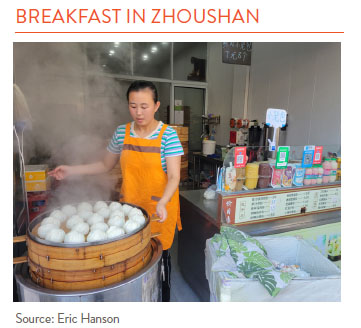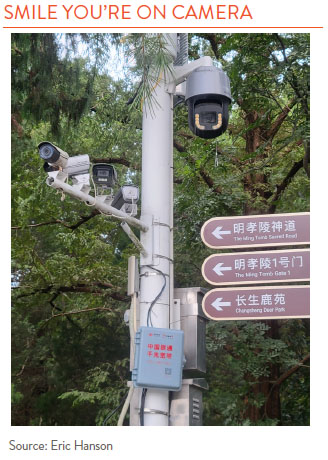After living five weeks in Zhoushan, my verdict is life there is very convenient and comfortable. Home ownership is widespread. For the vast majority of people, a “home” is an apartment in a high-rise complex consisting of 10 to 20 towers. Our apartment is in an 11-tower complex, each tower 10 to 15 floors. Doing the math, there are about 900 apartments, or about 3,000 people.
Our unit is two bedrooms, two baths, totaling about 1400 square feet. It is considered middle class by Chinese standards, not the highest end and not the lowest. It cost $300,000 U.S. when
finished two years ago. From my visual inspection, about 25% of the units in the complex are owned but not lived in. Some units are being held for a future move in and some are being held for investment. It is still standard practice in China for parents to provide a son with an apartment (and often a car too) before the bride’s parents will agree to a marriage.

The way the real estate market works in China is cities sell land on the outskirts of the original town to developers who in turn pre-sell units to buyers. The developers use some of the money from the pre-sells to build the apartments and some to buy more land from the city.
As long as prices are going up everyone wins. It’s estimated many cities earn 25% or more of their annual budget from land sales. Developers and buyers make out from rising real estate prices. A discussion of what happens when prices go down(!) is on page four.
Cities do a good job planning services for the apartments. Within a short distance of apartment clusters, the government builds primary and secondary schools, hospitals, and a vast network of buses or subways. Although crime is very low in China and private firearms are illegal, there are guards at most office buildings, apartments, and subways. Facial recognition is required to access the front gate at our apartment complex.

Each apartment complex is ringed by small businesses. You rarely have to go more than a block or two to find supermarkets, small stalls for breakfast or lunch (see picture of baozis – steamed stuffed buns), restaurants, hairdressers, and the ubiquitous foot massage storefronts.
Zhoushan is too small for a subway, but the bus system is extensive. The vast majority of urban buses we saw are all electric today – clean, quiet, and very inexpensive at $0.40 – $0.50 cents a ride depending on the route.
So, what’s not to like about China? Well first, security and surveillance. Cameras are everywhere, and national security cards, or passports for foreigners, are needed for subways, intercity buses, and trains. As long as you don’t think about surveillance it’s fine. Everything
is safe and well ordered. Once you think about surveillance, however, it’s a little like “1984.”

Second, “personal space” has a different meaning in China. There is still a lot of jostling on the street, and cutting in line is common, although not as bad as 20 years ago. And my pet peeve is that, if you are being served at any counter is that it is very common and accepted for someone to barge in and interrupt with a question. In China be prepared for people to talk loudly – on the phone, on the street, and in restaurants. Finally, it is very important in China to be as Chinese as you can. Fume on the inside if you will, but on the outside, no emotion. Don’t
lose face.